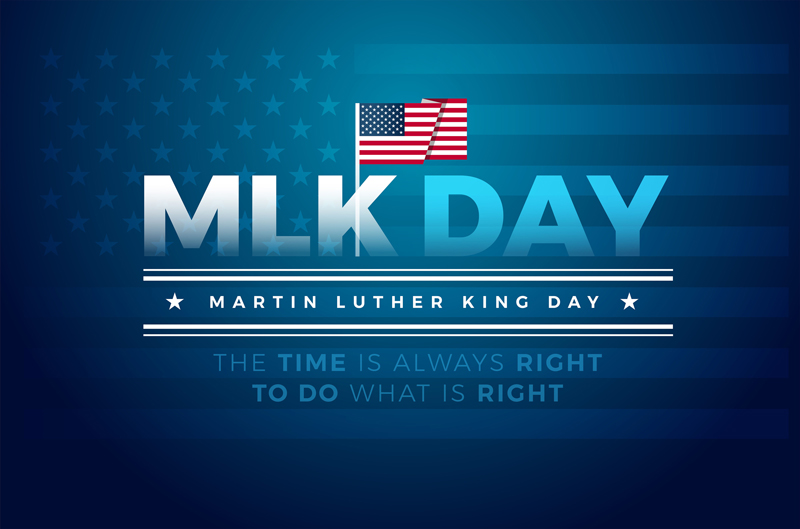
In response to the COVID-19 health emergency, Congress passed the Families First Coronavirus Response Act (FFCRA), which provided for mandatory Expanded Paid Sick Leave (EPSL) and Expanded Family Medical Leave (EFMLA) for employees of businesses with fewer than 500 employees. The U.S. Department of Labor (DOL) has assembled and continues to update several resources for employers, including a Frequently Asked Questions (FAQ) page to answer practical questions regarding how employers should apply the new laws, and what employees should expect if the need to take leave arises. The Frequently Asked Questions (FAQ) may be found here: https://www.dol.gov/agencies/whd/pandemic/ffcra-questions
If you are required to pay your employees expanded sick leave or family medical leave, you should also keep in mind that the FFCRA provides employers with tax credits equal to 100% (with capped limits) of the amount an employer pays to employees under both the expanded sick leave and expanded family medical leave provisions until the end of the year or until these provisions are modified by Congress. Employers should also consider the availability of various SBA loan programs and other assistance which may provide for reimbursement, loan forgiveness, and up-front advances on payroll taxes for amounts paid under the new paid leave provisions of the FFCRA. Information on some of these programs, including information under the Paycheck Protection Loan provision designed to help employers maintain their current payrolls, is available via the U.S. Treasury at https://home.treasury.gov/policy-issues/top-priorities/cares-act/assistance-for-small-businesses
More recent updates to this guidance from the DOL include whether an employer with fewer than 50 employees may take an exemption from providing paid leave under the EPSL and EFMLA programs. The DOL has also announced a temporary stay on enforcement of the expanded paid leave laws under its Field Assistance Bulletin No. 2020-1. Below is a summary of these recent updates:
TEMPORARY LIMITED NON-ENFORCEMENT PROVISIONS
The DOL will not bring enforcement actions against any public or private employer for violations of the Act occurring within 30 days of the enactment of the FFCRA, i.e. March 18 through April 17, 2020, provided that the employer has made reasonable, good faith efforts to comply with the Act. For purposes of this non-enforcement position, an employer who is found to have violated the FFCRA acts “reasonably” and “in good faith” when all of the following conditions has been met:
- The employer remedies any violations, including by making all affected employees whole as soon as practicable, by ensuring that all covered employees are paid all applicable sick leave and family leave wages.
- The violations of the Act were not “willful,” meaning the employer did not know or show reckless disregard for whether the employer was in compliance with the new law.
- The DOL receives a written commitment from the employer to comply with the Act in the future.
If the public or private employer either (i) violates the Act willfully, (ii) fails to provide a written commitment to future compliance with the Act, or (iii) fails to remedy the violation upon notification by the DOL, the employee seeking payment, or a representative of that employee, including by making all affected employees whole as soon as practicable, the DOL reserves its right to exercise its enforcement authority.
After April 17, 2020, this limited stay of enforcement will be lifted, and the DOL will resume enforcement under all applicable provisions of law.
SMALL BUSINESS EXEMPTION FROM EXPANDED PAID LEAVE PROVISIONS FOR SCHOOL CLOSINGS OR CHILD CARE UNAVAILABILITY ONLY
Under the FFCRA, the DOL was given the authority to promulgate rules for when an employer could claim an exemption from having to pay expanded leave benefits due to hardship. The recent guidance from the DOL regarding small business (less than 50 employees) exemptions from paying sick leave benefits and extended leave benefits apply only to those situations where an employee is taking sick leave or family leave as a parent of a child when the child’s school is closed or the child’s care provider is unavailable. Employers must still currently provide paid sick leave to all covered employees who must take sick leave under any other provision of the new law, which includes paid sick leave to cover other employee situations such as a diagnosis of COVID-19 or seeking a diagnosis, or upon the advice of a health professional to that the employee should quarantine at home due to a diagnosis or exposure to COVID-19.
Under the small business exemption, the employer, including a religious or nonprofit organization, with fewer than 50 employees is exempt from providing (a) paid sick leave due to school or place of care closures or child care provider unavailability for COVID-19 related reasons and (b) expanded family and medical leave due to school or place of care closures or child care provider unavailability for COVID-19 related reasons when doing so would jeopardize the viability of the small business as a going concern. According to the DOL guidance, a small business may claim this narrow exemption if an authorized officer of the business has determined that:
- The provision of paid sick leave or expanded family and medical leave would result in the small business’s expenses and financial obligations exceeding available business revenues and cause the small business to cease operating at a minimal capacity;
- The absence of the employee or employees requesting paid sick leave or expanded family and medical leave would entail a substantial risk to the financial health or operational capabilities of the small business because of their specialized skills, knowledge of the business, or responsibilities; or
- There are not sufficient workers who are able, willing, and qualified, and who will be available at the time and place needed, to perform the labor or services provided by the employee or employees requesting paid sick leave or expanded family and medical leave, and these labor or services are needed for the small business to operate at a minimal capacity.
Employers are encouraged to obtain legal counsel to assist with determining whether their business operations meet the criteria for the limited exemption. We will provide updates as additional guidance is made available regarding the small business exemption.
IMPACT OF THE FFCRA ON EMPLOYERS’ EXISTING PAID LEAVE POLICIES
Paid Sick Leave.
Under the new FFCRA emergency paid sick leave provisions, employers are not permitted to apply a covered employee’s existing paid sick leave time to satisfy the requirement to pay expanded leave under the FFCRA, unless the employee agrees. Paid sick leave under the FFCRA is leave time that must be provided in addition to your employee’s other leave entitlements. You may not require your employee to use provided or accrued paid vacation, personal, medical, or regular sick leave before the paid sick leave. You also may not require your employee to use such existing leave concurrently with the paid sick leave under the FFCRA. But if you and your employee agree, your employee may use preexisting leave entitlements to supplement the amount he or she receives from paid sick leave, up to the employee’s normal earnings. Note, however, that you are not entitled to a tax credit for any paid sick leave that is not required to be paid or exceeds the limits set forth under the FFCRA. You are free to amend your own policies to the extent consistent with applicable law.
Expanded FMLA to Care for a Child.
According to the new guidance issued by the DOL via it’s regularly updated Q&A FAQ, employers may require employees to use personal leave or paid time off, but not medical or sick leave if the employee is not ill. After the first two workweeks (usually 10 workdays) of expanded family and medical leave under the EFMLA, you may require that your employee take concurrently for the same hours expanded family and medical leave and existing leave that, under your policies, would be available to the employee in that circumstance.
If you do so, you must pay your employee the full amount to which he or she is entitled under your existing paid leave policy for the period of leave taken. You must pay your employee at least 2/3 of his or her pay for subsequent periods of expanded family and medical leave taken, up to $200 per workday and $10,000 in the aggregate, for expanded family and medical leave. If your employee exhausts all preexisting paid vacation, personal, medical, or sick leave, you would need to pay your employee at least 2/3 of his or her pay for subsequent periods of expanded family and medical leave taken, up to $200 per day and $10,000 in the aggregate. You are free to amend your own policies to the extent consistent with applicable law.
You may pay your employees in excess of FFCRA requirements. But you cannot claim, and will not receive tax credit for, those amounts in excess of the FFCRA’s statutory limits.
There is one difference regarding an employee’s eligibility for paid sick leave versus expanded family and medical leave. While your employee is eligible for paid sick leave regardless of length of employment, your employee must have been employed for 30 calendar days in order to qualify for expanded family and medical leave. For example, if your employee requests expanded family and medical leave on April 10, 2020, he or she must have been your employee since March 11, 2020.
Employers Subject to FMLA Prior to April 1, 2020 Are Not Required to Provide Additional Leave.
Prior to April 1, 2020, employers with 50 or more employees and public employers were generally subject to providing FMLA leave to eligible employees under certain circumstances. For such employers, if an employee was covered by the FMLA prior to April 1, 2020, his or her eligibility for expanded family and medical leave depends on how much leave he or she has already taken during the 12-month period that the business used for regular FMLA leave. Employees may take a total of 12 workweeks for FMLA or expanded family and medical leave reasons during a 12-month period. If an individual employee has taken some, but not all, 12 workweeks of available leave under FMLA during the current 12-week period that is documented by the employer, he or she may take the remaining portion of leave available. If the employee has already taken 12 workweeks of regular FMLA leave during this 12-month period, the employer is not required to provide any additional FMLA leave under the expanded provisions in the FFCRA.
However, the employee may still be eligible to take paid sick leave. If you are an employer who has properly designated and documented all FMLA leave, and were subject to the regular FMLA provisions prior to April 1, 2020, you may be able to shorten the length of time that you are now required to provide paid FMLA leave under the FFCRA.
If you have any questions regarding the application of the new guidance for implementing the FFCRA’s paid leave provisions or any other questions regarding the new COVID-19 related laws, please contact either Matt Stokely or Kristina Curry at (937)223-1130 or email mstokely@pselaw.com or kcurry@pselaw.com .












